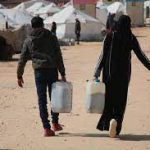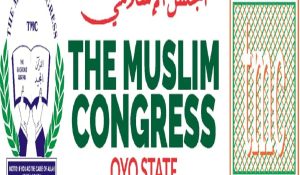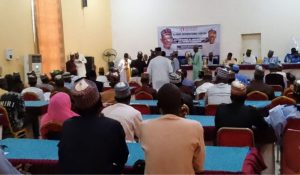
Nigeria needs work not prayer
It was the book of James 2:14-26 that suggests, faith without work is dead. Applied to Nigeria’s current situation, the nation’s present challenges demand real solutions—not just hopes and prayers. Recently, news broke that First Lady Oluremi Tinubu and National Security Adviser Nuhu Ribadu were to lead a national prayer session to address Nigeria’s mounting crises, ranging from soaring energy costs to insecurity. Organized in partnership with religious leaders, this event aims to seek divine help for the nation. However, while spiritual support is meaningful to many, history and the success of other nations show that concrete, intentional action is what truly drives sustainable change.
After just a week, the First Lady backed away from the summit. Her decision hints at a larger issue: Nigeria’s enduring habit of turning to prayer over policy, hoping for miracles instead of instituting measures for lasting improvement. Religion is powerful in private and personal lives, but national progress relies on planning, execution, and results.
The struggles Nigerians face are immense. A skyrocketing cost of living, devalued currency, overstretched resources, failing infrastructure, and underfunded education and health sectors threaten citizens daily. Effective governance, rooted in action and accountability, is the foundation of national well-being. Prayer alone can’t provide food, electricity, transportation, or a safe environment—only actionable policies can. Citizens and officials alike should understand that while prayer is a form of support, it doesn’t replace the need for clear strategies to combat hunger, foster education, and strengthen institutions.
Both Islam and Christianity emphasize action alongside faith, but successful countries have invested in science, technology, and human capital to thrive. Saudi Arabia, Israel, and Gulf states have used their wealth to build world-class cities, infrastructure, and industries through careful planning and strategic allocation of resources. If Nigeria wants to match their development, its leaders must make similarly wise choices.
This should remind us of the importance of a clear division between religion and state. Government officials, particularly security and economic leaders, should prioritize their constitutional duties over religious activities. Imagine the possibilities if the focus were on revamping the power grid, restructuring failing policies, and developing sustainable infrastructure. And rather than merely reciting prayers, citizens could also take up local initiatives—cleaning up communities, volunteering in education, or innovating on eco-friendly solutions, addressing social challenges at the grassroots level.
When the government and private sectors come together to address Nigeria’s core issues with dedication, policies, and initiatives—combined with community action—hope will take on real meaning.
CSR REPORTERS dares to add: When combined with efforts in corporate social responsibility (CSR) and sustainability, such as ensuring stable electricity, supporting clean energy, and investing in sustainable farming, we can turn hopes into real change and bring long-term stability to the nation.









